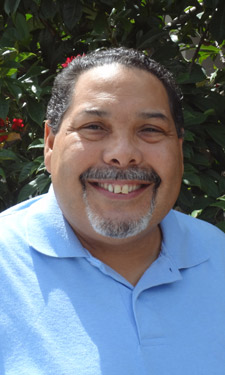 As a park and recreation professional with more than 30
years in the field, David Miller knows what tools his colleagues need to excel
in their careers and serve their communities well. His own career has taken him
from park and recreation agencies in Michigan and Florida to the city of
Alexandria, Virginia, where he currently serves as division chief of recreation
services. But Miller is also committed to helping park and recreation professionals
across the country augment their knowledge and skills as well. His volunteer service
includes six years on NRPA’s Congress Program Committee, which helps plan the
association’s annual gathering, and seven with the National Recreation and
Parks Ethnic Minority Society, which works to promote professional development and
advancement opportunities for people of color in the field of parks and
recreation.
As a park and recreation professional with more than 30
years in the field, David Miller knows what tools his colleagues need to excel
in their careers and serve their communities well. His own career has taken him
from park and recreation agencies in Michigan and Florida to the city of
Alexandria, Virginia, where he currently serves as division chief of recreation
services. But Miller is also committed to helping park and recreation professionals
across the country augment their knowledge and skills as well. His volunteer service
includes six years on NRPA’s Congress Program Committee, which helps plan the
association’s annual gathering, and seven with the National Recreation and
Parks Ethnic Minority Society, which works to promote professional development and
advancement opportunities for people of color in the field of parks and
recreation.
You have been a member of the Congress Program Committee since 2006 and served as chair in 2011. What has your work on this committee involved?
During my time [on the committee], I managed this thing called “the board,” which was an interesting process! We had this big Velcro board where we would select sessions and slot them. It’s all electronic now, which happened on my watch, and I consider that one of my biggest accomplishments during the year I was the chair.
Why do you think it’s important for NRPA members to attend the annual Congress, and what advice do you have for attendees to get the most out of their Congress experience?
Starting with the personal side first, Congress is a wonderful opportunity to connect and reconnect with other professionals in less-formal settings and have some informal dialogue about what’s going on. I probably get as much benefit out of that as anything else. The second benefit, from the professional side, is to find out what the trends are, what’s working in the field, and to hear from practitioners and other professionals who are making it happen. It’s such a great opportunity, and you can gain so much.
You worked for the City of Fort Lauderdale as they were going through their initial accreditation phase, and you now work for an agency that has been accredited for eight years. How does working for an accredited agency differ from working for a non-accredited agency?
It’s interesting, Fort Lauderdale was the first agency I worked with that went through the process when I was part of it. The pride that was exhibited from the staff [upon receiving the CAPRA accreditation] and their ability to say ‘Hey, we’re recognized as one of the best, we’re recognized as doing things right,’ creates an immense pride in the organization, but it also creates some very good structure for how things ought to operate. [Accreditation] helps us to set benchmarks and set standards, from programming policy to how we keep track of our meeting notes— things that you don’t often think of as important, but down the line, they become very important. So it helps us to create those kinds of standards to operate on, those things to help the agency advance forward.
Minorities are often underrepresented in the field of parks and recreation, a demographic you have worked to support through your work with the National Recreation and Parks Ethnic Minority Society (EMS). How has the field changed since you began working in it, and what steps need to be taken for continued inclusive progress?
Our profession is a microcosm of society; as society advances, there become more opportunities for people of color and of different cultures. It’s beholden upon those who get positions that they operate with competence, character, and integrity so it blazes a trail for those who follow. What we’ve done in EMS that we’re trying to implement this year is a mentorship program, to mentor professionals of color to help them make that transition to the next level so they can set examples. There do need to be more opportunities, and I think that just comes with time.

